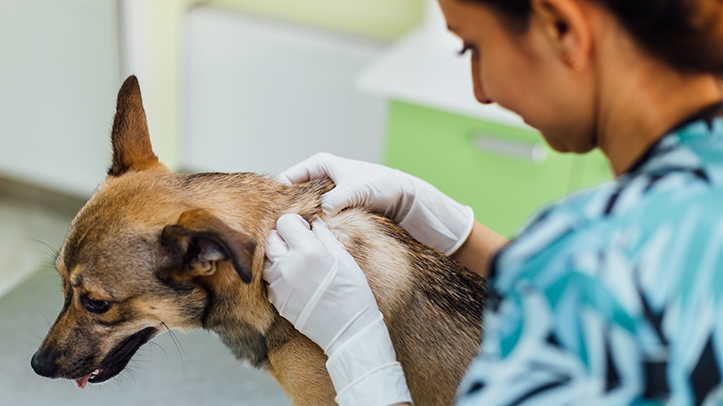With research showing almost all (98%) companion animal vets are concerned about the impact of parasiticide treatments on the environment, the British Veterinary Association (BVA), British Small Animal Veterinary Association (BSAVA) and British Veterinary Zoological Society (BVZS) have joined together to create a new five-point plan to support veterinary teams in reducing their impact.
The new resource is a poster entitled Responsible use of parasiticides for cats and dogs: The five-point plan, which can be displayed at veterinary surgeries. It offers tips for each of the five points on how to adapt the use of parasiticides in practice.
The five points are:
- Work with clients to prevent and check for parasites;
- Understand the potential risks to animals, humans, and the environment;
- Take a risk-based approach to prescribing;
- Ensure appropriate use; and
- Record and monitor use.
The five-point plan is the first resource BVA, BSAVA and BVZS have issued since they launched their joint position on the Responsible use of parasiticides for cats and dogs. This position, which aims to address concerns such as the impact such medicines are having on the environment, recommended that vets should always take a proportionate, targeted and responsible approach to the use of small animal parasiticides and carefully weigh up all risks before prescribing or recommending treatment.
BVA President Justine Shotton said: “Parasiticides can be highly effective in treating everyday pet ailments, but they can have a significant negative impact on the environment and therefore should be used with careful consideration.
“By reassessing how parasiticides are used in practice, taking a risk-based approach and fine-tuning use to the needs of each client rather than taking a blanket approach, vets have a real opportunity to contribute towards ensuring we support natural biodiversity and a healthy planet for us and our pets into the future. This new resource aims to support vet teams on this journey and help educate their clients.”


